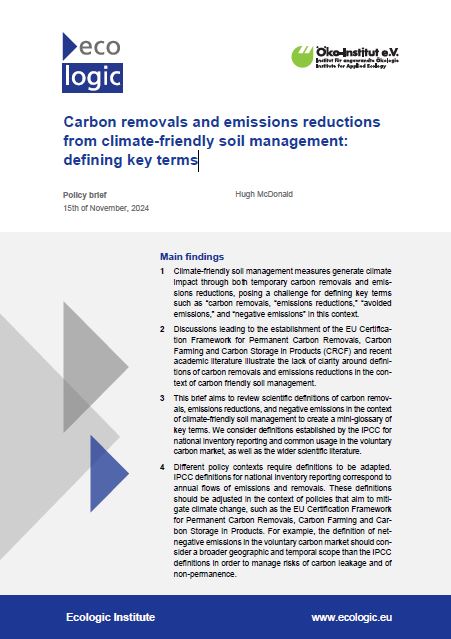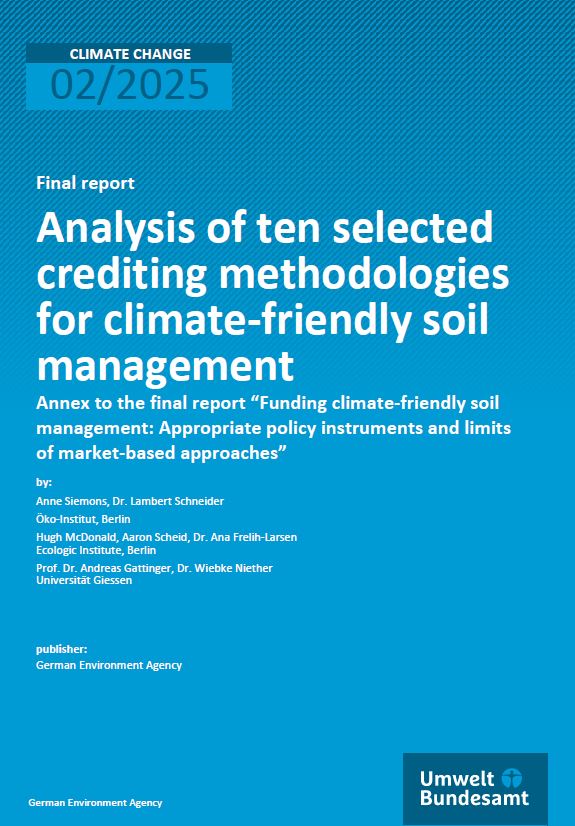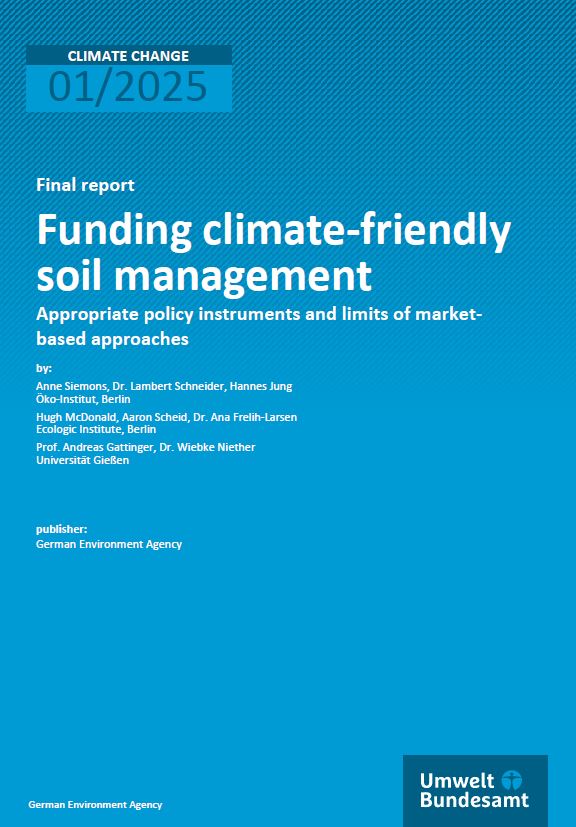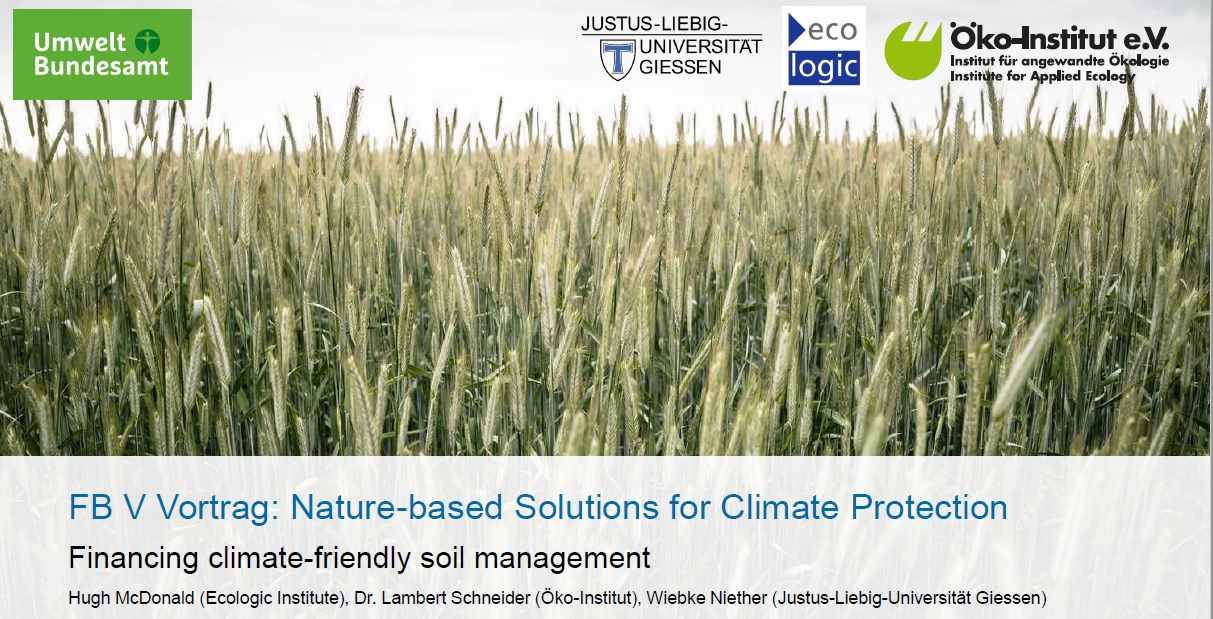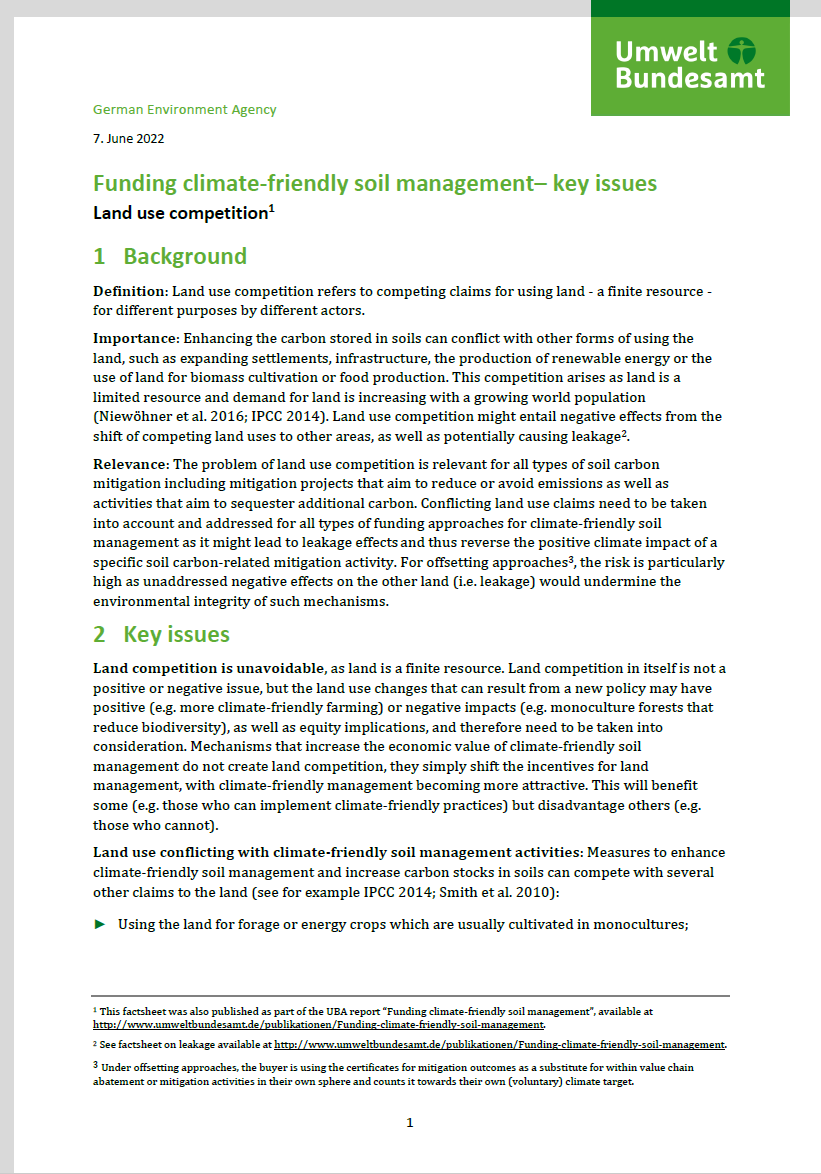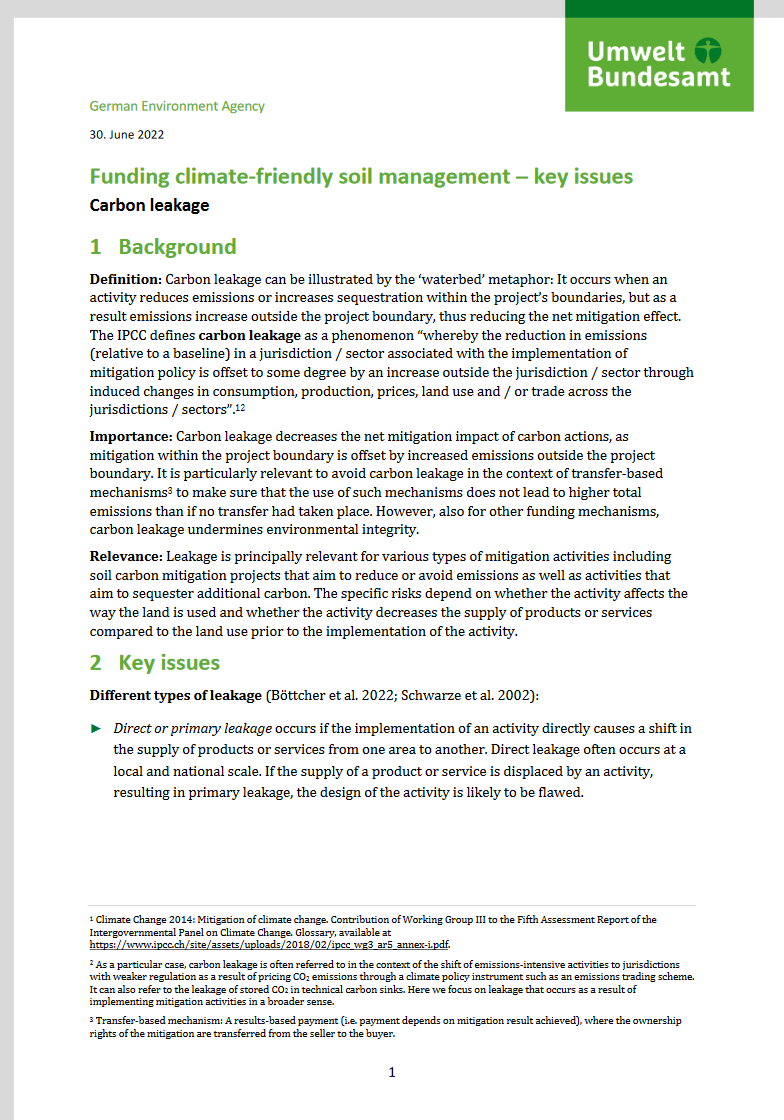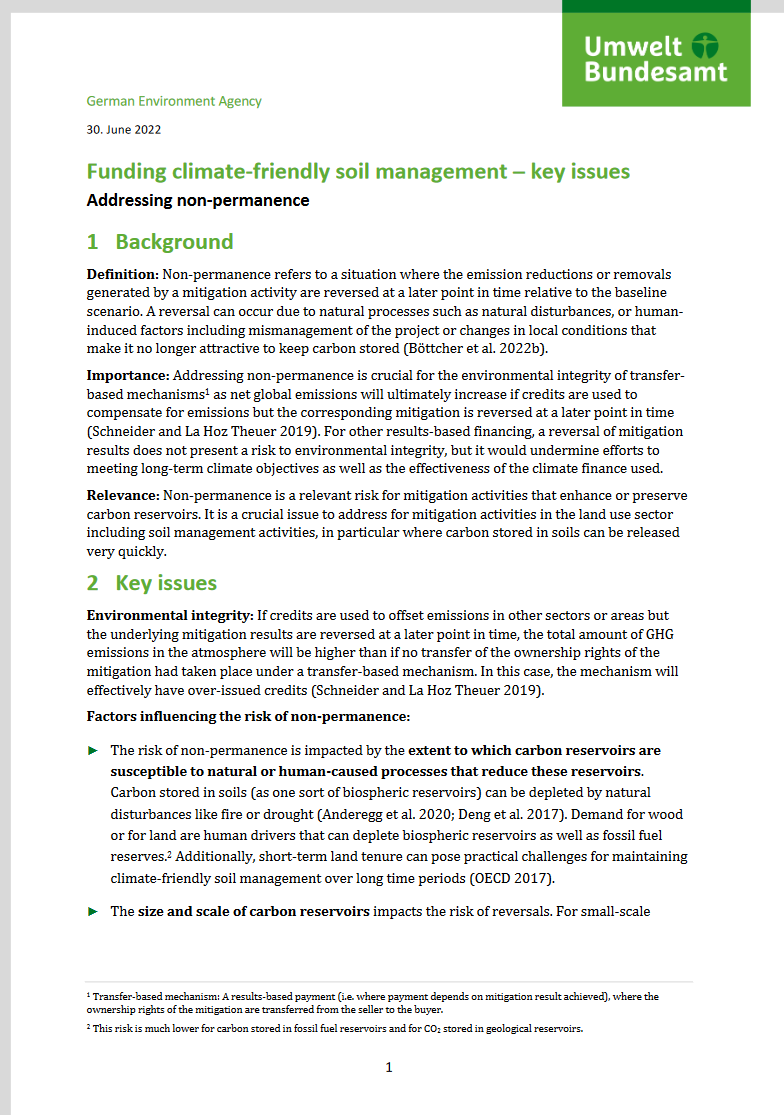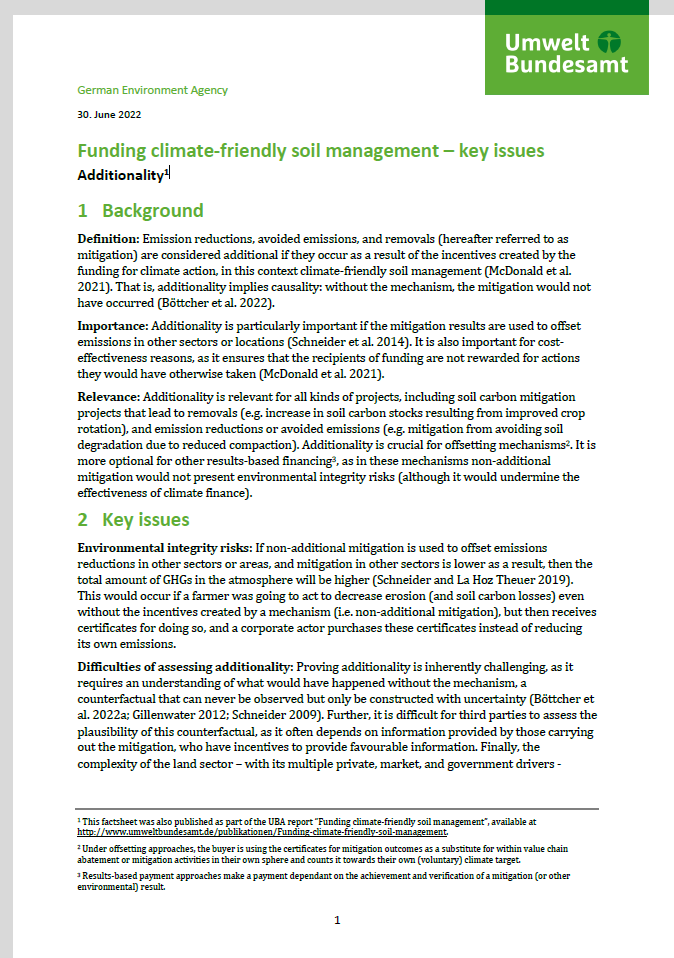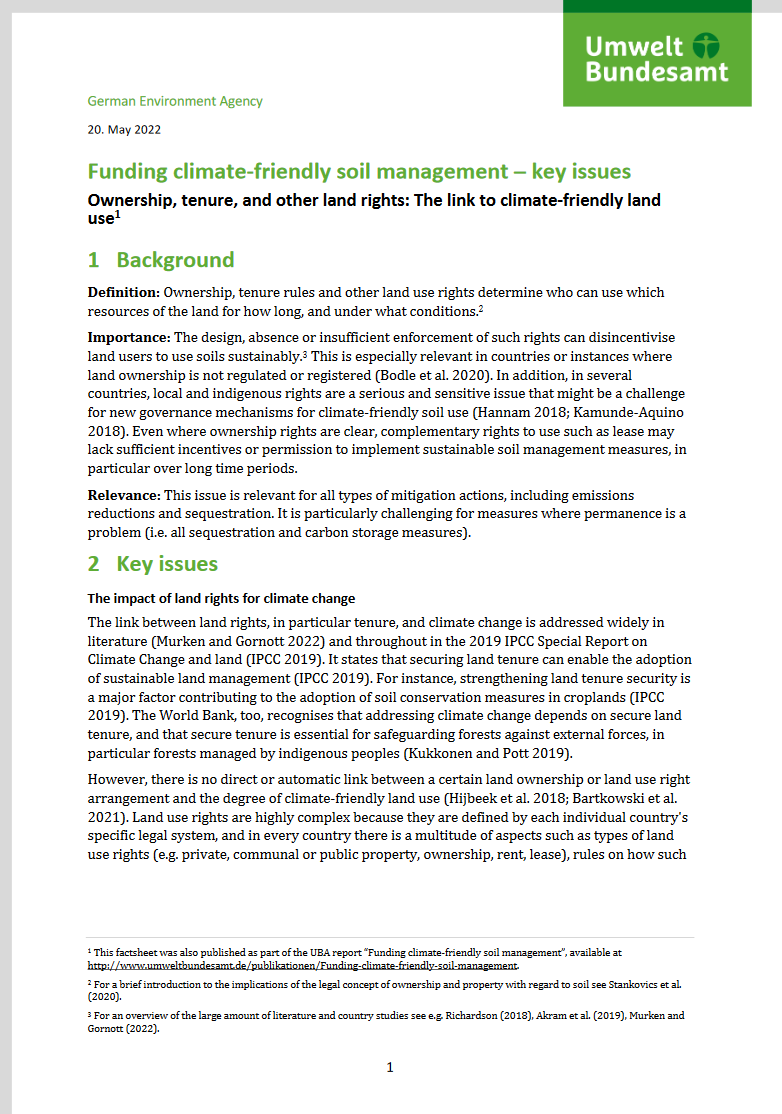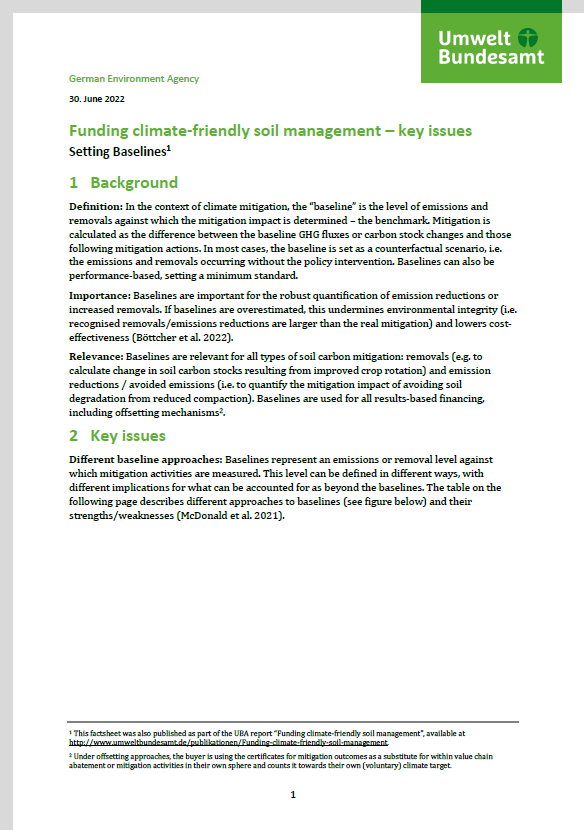Carbon Removals and Emissions Reductions from Climate-friendly Soil Management
Defining key terms
- Publication
- Citation
McDonald, Hugh 2024: Carbon removals and emissions reductions from climate-friendly soil management: defining key terms. Policy Brief. Berlin: Ecologic Institute.
Climate-friendly soil management measures generate climate impact through both temporary carbon removals and emissions reductions, posing a challenge for defining key terms such as "carbon removals", "emissions reductions," "avoided emissions," and "negative emissions". This brief reviews scientific definitions of these key terms to create a mini-glossary and discuss key definitional issues in the soil carbon context. We consider definitions established by the IPCC for national inventory reporting and common usage in the voluntary carbon market, as well as the wider scientific literature.
A key conclusion is that different policy contexts require definitions to be adapted. IPCC definitions for national inventory reporting correspond to annual flows of emissions and removals. These definitions should be adjusted in the context of policies that aim to mitigate climate change, such as the EU Certification Framework for Permanent Carbon Removals, Carbon Farming and Carbon Storage in Products. For example, the definition of net-negative emissions in the voluntary carbon market should consider a broader geographic and temporal scope than the IPCC definitions in order to manage risks of carbon leakage and of non-permanence.
Background to the document
The Policy Brief was commissioned by the German Environment Agency as part of the project Nature-based Solutions for Climate Protection – Financing climate-friendly soil management. This project investigates how transfer-based instruments and other forms of financial incentives can promote measures to enhance the carbon sink function of soils, whilst considering the environmental and social risks and challenges.
